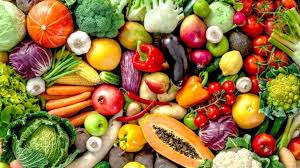by Virgilio Marin
A study presented at the American Society for Nutrition annual meeting in Baltimore links death due to stroke and heart disease to inadequate intake of fruits and vegetables.
The researchers estimate that one out of seven cardiovascular deaths is due to a low intake of fruit. Meanwhile, one out of 12 is caused by a low intake of vegetables.
The preliminary findings emphasize the importance of a healthy diet for cardiovascular health. As a modifiable risk factor to heart disease, it serves as a powerful reminder to people of the major ways they can lower disease and death risk.
“Eating more fruits and vegetables is a relatively accessible and affordable strategy to reduce the risk of cardiovascular disease,” added Victoria Miller, one of the authors of the study.
Low intake of fruits and vegetables linked to cardiovascular death
For the study, the researchers looked at data on food availability to estimate the national averages of fruit and vegetable intake for 113 countries. They also drew from statistics on causes of death per country, as well as studies on cardiovascular risks and the benefits of varying levels of fruit and vegetable intake.
From this pool of information, the researchers developed a model to measure the number of deaths that were caused by a consumption below the optimal level. For a diet to be considered optimal, it has to have at least 300 grams per day for fruits while at least 400 grams per day for vegetables. This metric is based on dietary guidelines and studies of cardiovascular risk factors.
Results showed that low fruit intake is associated with 1.8 million deaths from cardiovascular disease in 201o. Out of this number, 1.3 million were from a stroke while about 500,000 were from coronary artery disease.
On the other hand, low vegetable intake was linked with around 1 million deaths. Of these, around 200,000 were due to a stroke while 800,000 were from coronary artery disease.
Most of these deaths came from countries with the lowest overall intake of fruits and vegetables. Countries in South Asia, East Asia and sub-Saharan Africa displayed low fruit intake and higher rates of death from stroke. Similarly, countries in Central Asia and Oceania displayed low vegetable intake and had higher rates of coronary artery disease.
In the United States, 140,000 cardiovascular deaths in 2010 were linked to low fruit and vegetable intake.
Given these findings, the researchers highlight the need to make fruits and vegetables accessible to everyone, especially in populations that have a poor consumption of these foods.
“These findings indicate a need to expand population-based efforts to increase the availability and consumption of protective foods like fruits and vegetables,” said Miller.
Doubling fruit and vegetable intake is key to better health
As the study indicates, what you eat affects your risk of dying from cardiovascular disease. Fortunately, your diet is something that you can control. By eating more fruits and vegetables, you can lower your risk of diseases and boost your health. (Related: Reverse cardiovascular disease with cherries.)
Studies have shown that the more fruits and vegetables you eat, the better protected you will be against cardiovascular disease. If you typically eat five servings (about two-and-a-half cups) a day, you might consider doubling it to 10. Doing so lessens your risk of cardiovascular disease by 28 percent and your risk of premature death by 31 percent.
Apples, pears, oranges and other citrus fruits are particularly healthful fruits. Meanwhile, green leafy vegetables, cruciferous vegetables and green and yellow vegetables are among the most nutritious plant foods around.
By adding more of these to your plate, you can be better protected from life-threatening diseases and enjoy a better quality of life in the future. (Natural News).
For more information on the benefits of organic fruits and vegetables, visit Fresh.news.
Sources include:



